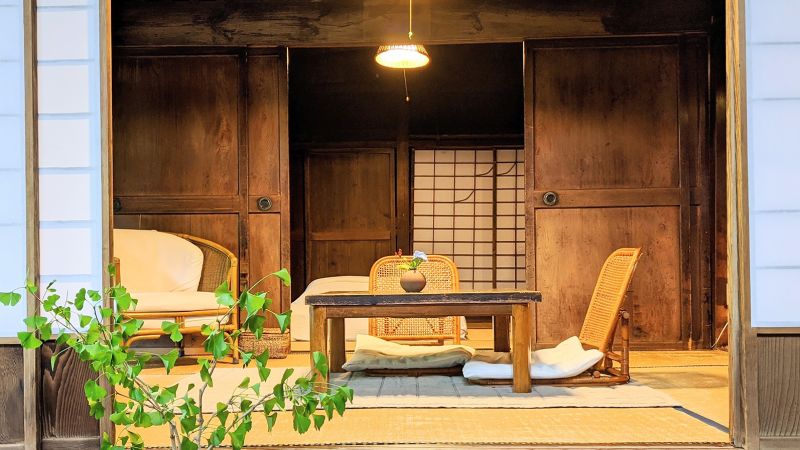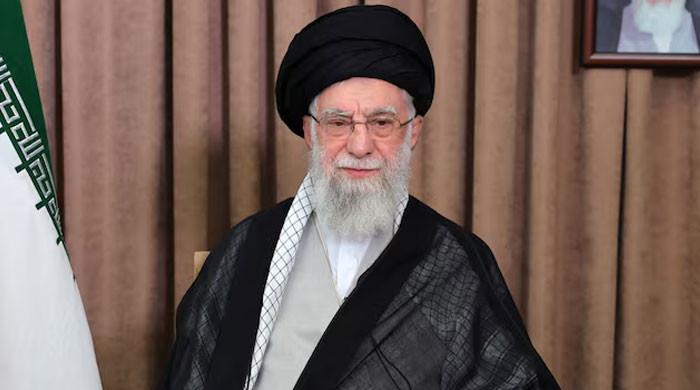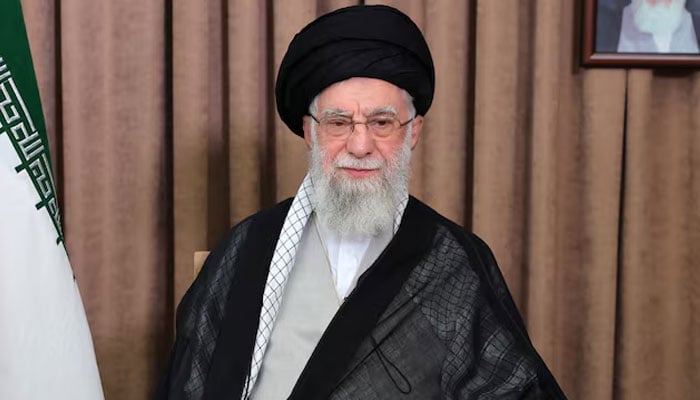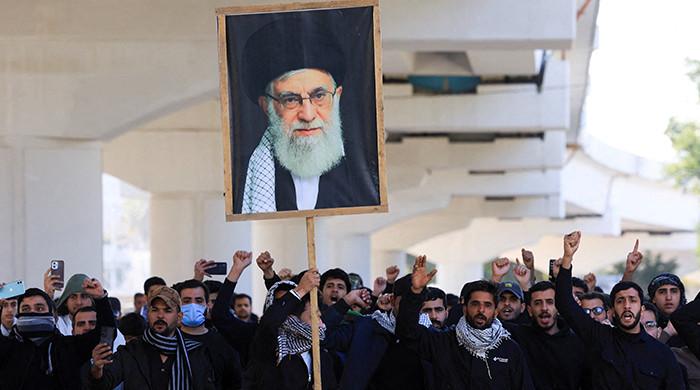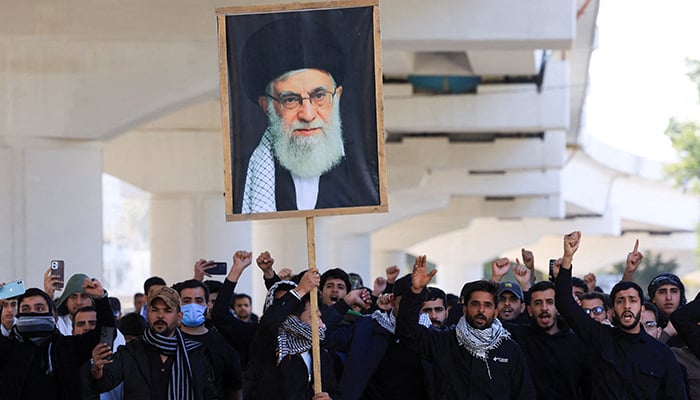Editor’s Note: Sign up for Unlocking the World, CNN Travel’s weekly newsletter. Get the latest news in aviation, food and drink, where to stay and other travel developments.
CNN
—
He’d spent years backpacking around the world, and Japanese traveler Daisuke Kajiyama was finally ready to return home to pursue his long-held dream of opening up a guesthouse.
In 2011, Kajiyama arrived back in Japan with his Israeli partner Hila, who he met in Nepal, and the pair set about finding the perfect location for their future venture.
However, there were a couple of major stumbling blocks in their way. To start with, Kajiyama had very little money to speak of after years of globetrotting around destinations like Korea, Taiwan, India, Nepal, Guatemala, Cuba and Canada.
He also happened to have his heart set on a traditional Japanese house, typically known as kominka, which are usually passed down over generations.
“I wanted to have a traditional house in the countryside,” Kajiyama tells CNN Travel, explaining that he was determined to find two houses located next to each other, so that he and Hila could live in one, while the other would be a guesthouse that they’d run together. “I had a vision.”
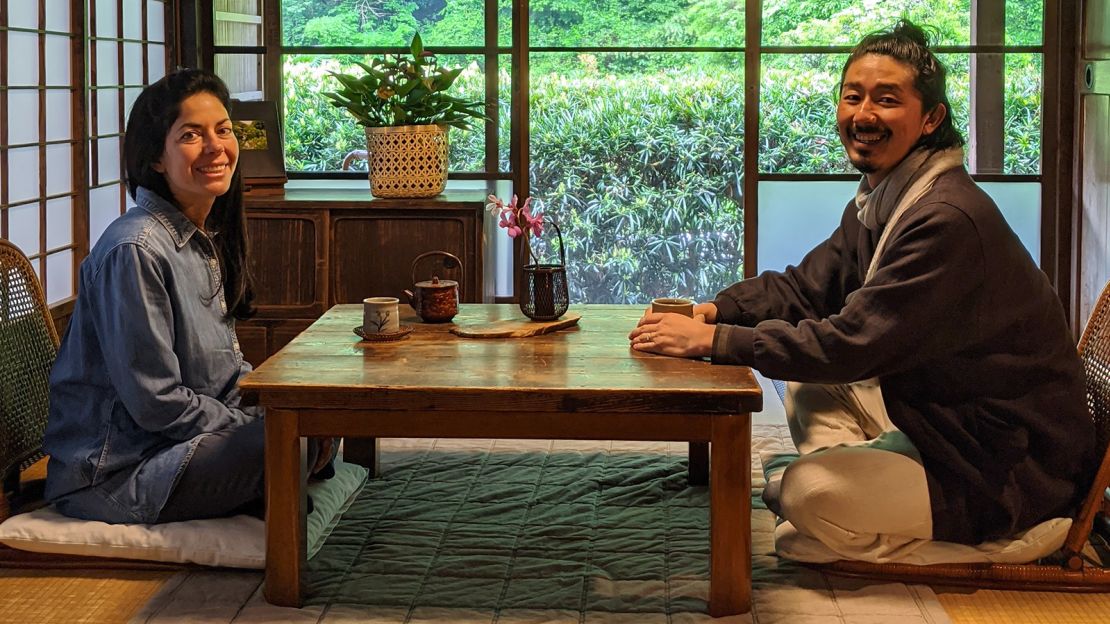
When he was unable to find anything that met his requirements, Kajiyama decided to shift his search to include the growing number of abandoned homes in the country.
As younger people ditch rural areas in pursuit of jobs in the city, Japan’s countryside is becoming filled with “ghost” houses, or “akiya.”
According to the Japan Policy Forum, there were 61 million houses and 52 million households in Japan in 2013, and with the country’s population expected to decline from 127 million to about 88 million by 2065, this number is likely to increase.
Kajiyama was driving around Tamatori, a small village located in the Shizuoka prefecture, between Kyoto and Tokyo, surrounded by green tea plantations and rice fields, when he came across an elderly woman farming, and decided to approach her.
“I said ‘Do you know if there are any empty houses around here?’ And she just pointed,” he recalls.
He looked over at the area that she was signaling to and spotted two neglected houses side by side – a former green tea factory and an old farmer’s home – located close to a river.
Both properties had been uninhabited for at least seven years and needed a huge amount of work. Kajiyama asked the woman to contact the owner to find out if they’d be interested in selling.
“The owner said that no one could live there, as it was abandoned,” he says. “But he didn’t say ‘no.’ Everybody was always saying ‘no.’ But he didn’t. So I felt there was a small chance.”
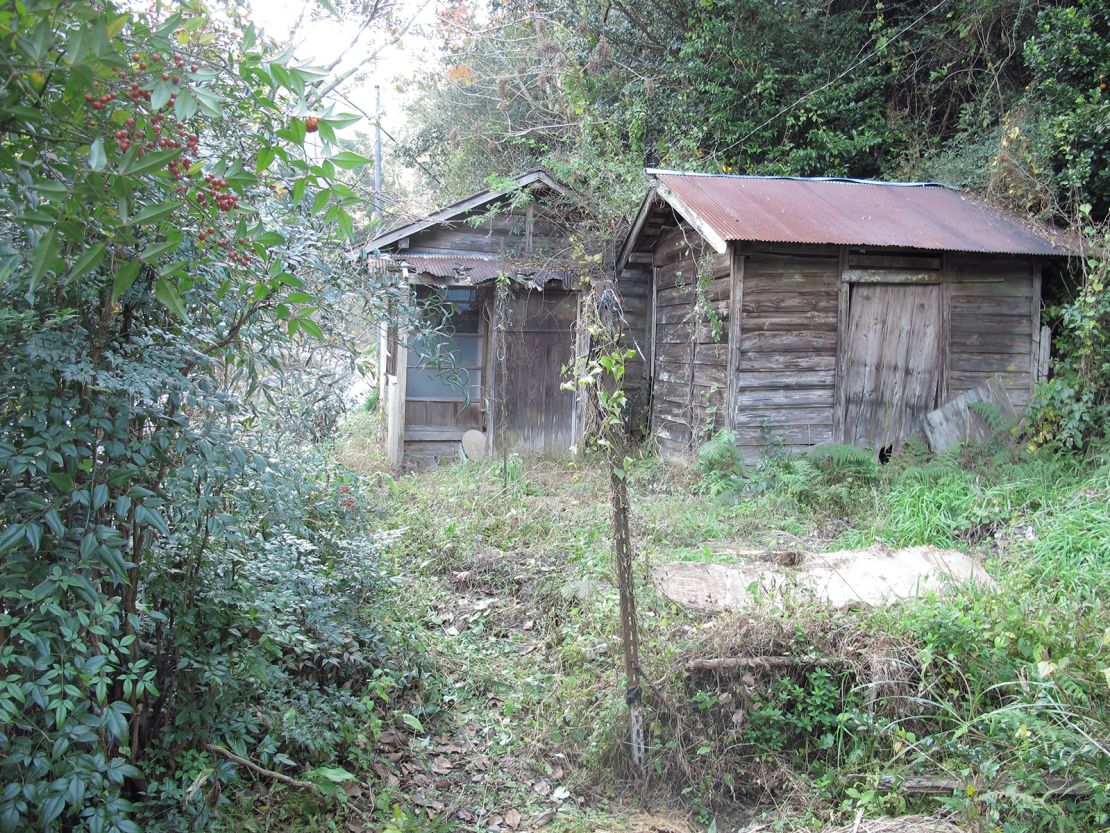
Kajiyama returned to visit the houses around five times, before going to visit the owner himself to negotiate an agreement that would see him use the old green tree factory as a home, and convert the farmer’s house into the guesthouse he’d always envisioned.
While he was keen to purchase both of the homes, he explains that the traditions around home ownership in Japan mean that he is unable to do so until it’s passed down to the son of the current owner.
“They said ‘if you take all the responsibility yourself, you can take it.’ So we made an agreement on paper,” he says.
Both he and Hila were aware that they had a lot of work ahead of them, but the couple, who married in 2013, were thrilled to be one step closer to having their own guesthouse in an ideal spot.
“It’s a very nice location,” says Kajiyama. “It’s close to the city, but it’s really countryside. Also people still live here and go to work [in the city].
“The house is also in front of the river, so when you go to sleep you can hear the sound of the water.”
According to Kajiyama, the process of clearing the house, which is around 90 years old, before beginning the renovation works was one of the hardest parts of the process, simply because there was so much stuff to sort through. However, he was able to repurpose some of the items.
During the first year, he spent a lot of time connecting with locals, gaining knowledge about the home, and helping the local farmers with farming for the first year or so.
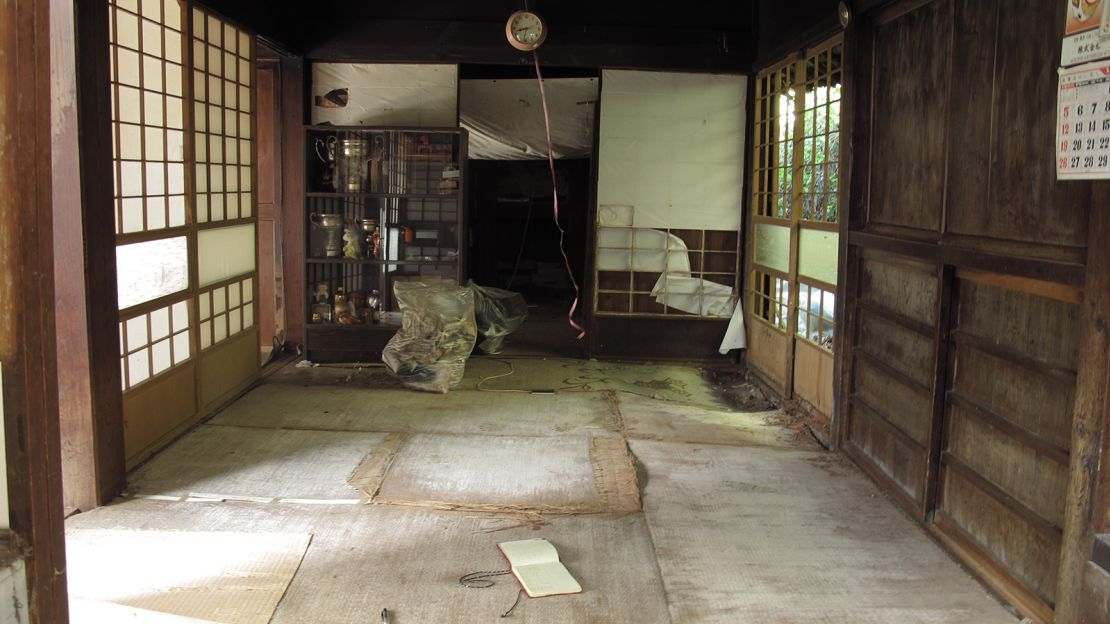
Although he wasn’t hugely experienced with renovation work, he had spent some time farming and completing building while he was backpacking, and had also taken odd jobs fixing peoples homes.
He completed much of the work on the guesthouse himself, replacing the floors and adding in a toilet, which he says was a wedding present from his parents, at a cost of around $10,000.
“I’m not really a professional,” he says.” I like to do carpentry and I enjoy creating things, but I have no experience in my background.
“From my several years of backpacking, I saw so many interesting buildings, so many houses of interesting shapes and I’ve been collecting those in my brain.”
Kajiyama was determined to keep the house as authentic as possible by using traditional materials.
He saved money by collecting traditional wood from building companies who were in the process of breaking down traditional houses.
“They need to spend the money to throw it away,” he explains. “But for me, some of the stuff is like treasure. So I would go and take the material that I wanted.
“The house is a very, very old style,” he says. “So it wouldn’t look nice if I brought in more modern materials. It’s totally authentic.”
He explains that very little work had previously been done to the house, which is quite unusual for a home built so many years ago.
“It’s totally authentic,” he says. “Usually, with traditional houses, some renovations are made to the walls, because the insulation is not so strong. So you lose the style.”
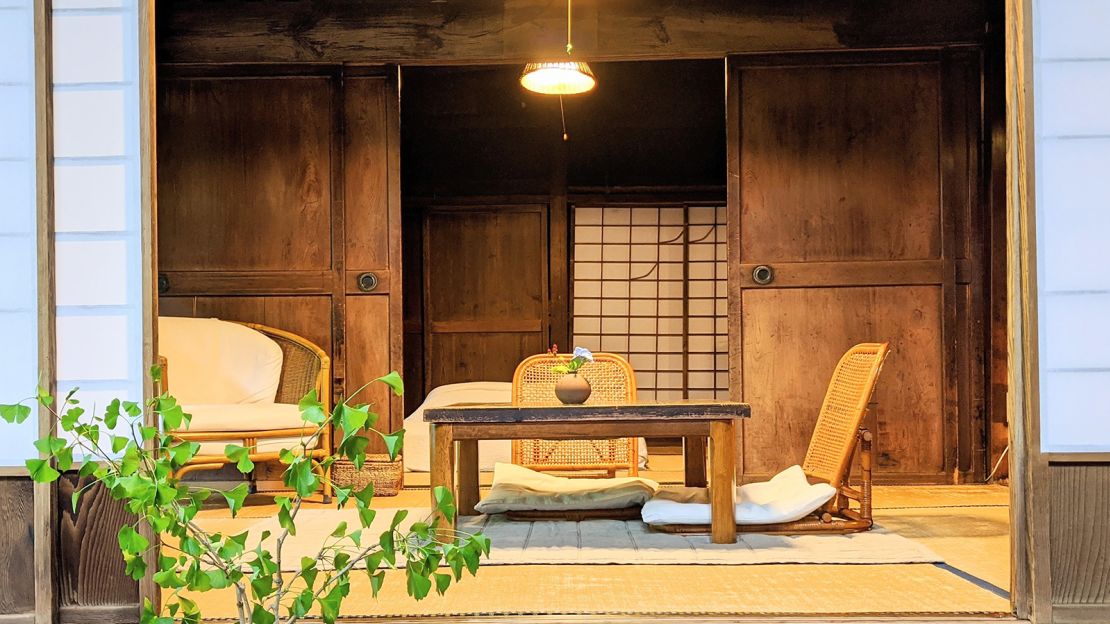
He says he received some financial support from the government, which meant he was able to bring in a carpenter and also benefited from Japan’s working holiday program, which allows travelers to work in exchange for food and board, when he needed extra help.
After doing some research into Japanese guesthouse permits, he discovered that one of the simplest ways to acquire one would be to register the property as an agriculture guesthouse.
As the area is filled with bamboo forests, this seemed like a no-brainer, and Kajiyama decided to learn everything he could about bamboo farming so that he could combine the two businesses.
“This is how I started farming,” he says.
In 2014, two years after they began working on the house, the couple were finally able to welcome their first guests.
“It was a beautiful feeling,” says Kajiyama. “Of course, this was my dream. But people really appreciate that it was abandoned and I brought it back to life.”
He says that hosting guests from all over the world has helped him to stay connected to his former life as a backpacker.
“I stay in one place, but people come to me and I feel like I’m traveling,” he says. “Today, it’s Australia, tomorrow it’s the UK and next week South Africa and India.
“People come from different places and they invite me to join them for dinner, so sometimes I join someone’s family life.”
Sadly, Hila passed away from cancer in 2022. Kajiyama stresses that his beloved wife played a huge part in helping him achieve his dream of having a guesthouse and says he couldn’t have done it without her.
“We were really together,” he adds. “She created this place with me. Without her it would not have been like this.”
While the three-bedroom guesthouse, which measures around 80 square meters, has been open for around eight years, Kajiyama is still working on it, and says he has no idea when he’ll be finished.
“It’s never ending,” he admits. “I’m halfway, I feel. It is beautiful already. But it started off abandoned, so it needs more details. And I’m getting better at creating, so I need time to do it.”
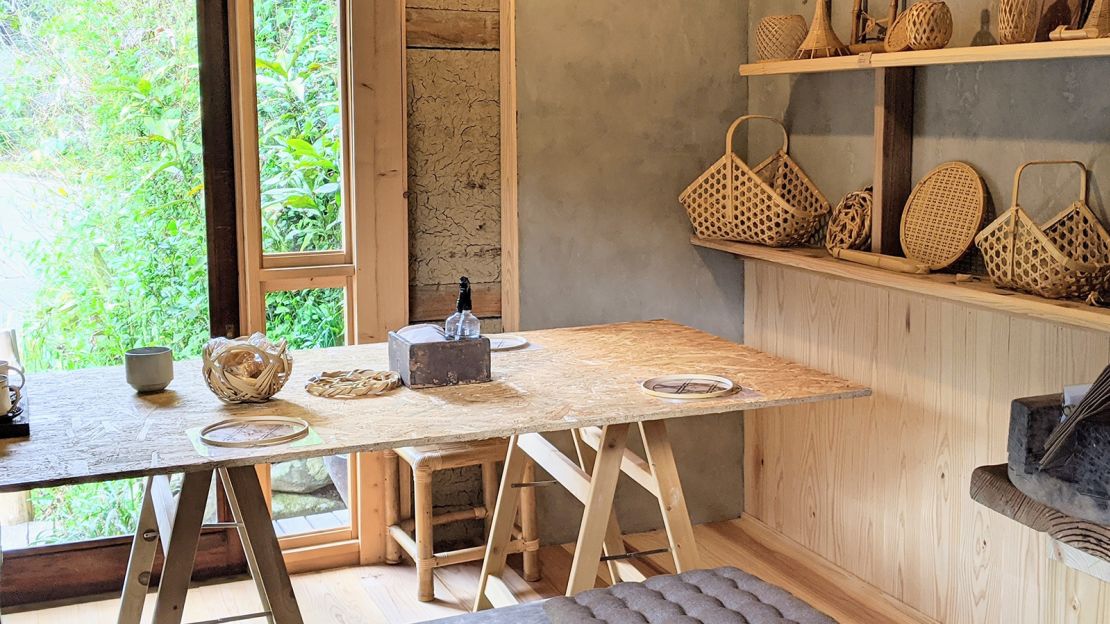
He explains that he’s unable to complete work on the home while guests are there. And while the property is closed during the winter, he spends two months as a bamboo farmer and usually spends a month traveling, which doesn’t leave him much time for renovations.
“Sometimes I don’t do anything,” he admits.
Yui Valley, which offers activities such as bamboo weaving workshops, has helped to bring many travelers to the village of Tamatori over the years.
“Most of the guests come after Tokyo, and it’s such a contrast,” he says. “They are really happy to share the nature and the tradition in our house.
“Most people have dreamed of coming to Japan for a long time and they have a very short time here.
“So they have such a beautiful energy. I’m happy to host in this way and join their holiday time. It’s very special [for me].”
Kajiyama estimates that he’s spent around $40,000 on the renovation work so far, and if the feedback from guests, and locals, is anything to go by, it seems to have been money well spent.
“People appreciate what I’ve done,” he adds. “So that makes me feel special.”
As for Hiroko, the woman who pointed out the house to him over a decade ago, Kajiyama says she’s stunned at the transformation, and is amazed at how many international travelers are coming to Tamatori to stay at Yui Valley.
“She cannot believe how much more beautiful it is 1755387117,” he says. “She didn’t think it was going to be like this. So she really appreciates it. She says ‘thank you’ a lot.”
Yui Valley, 1170 Okabecho Tamatori, Fujieda, Shizuoka 421-1101, Japan


